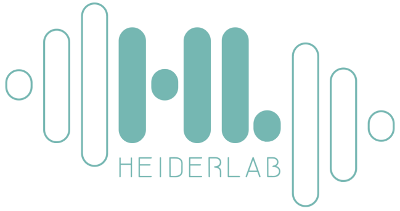CORona Drug InTEractions database
Identification of potential inhibitors of SARS-COV-2 endoribonuclease (EndoU) from FDA approved drugs: a drug repurposing approach to find therapeutics for COVID-19
Anshuman Chandra,Vaishali Gurjar,Imteyaz Qamar,Nagendra Singh
Abstract
SARS-CoV-2 is causative agent of COVID-19, which is responsible for severe social and economic disruption globally. Lack of vaccine or antiviral drug with clinical efficacy suggested that drug repurposing approach may provide a quick therapeutic solution to COVID-19. Nonstructural protein-15 (NSP15) encodes for an uridylate-specific endoribonuclease (EndoU) enzyme, essential for virus life cycle and an attractive target for drug development. We have performed in silico based virtual screening of FDA approved compounds targeting EndoU in search of COVID-19 drugs from commercially available approved molecules. Two drugs Glisoxepide and Idarubicin used for treatment for diabetes and leukemia, respectively, were selected as stronger binder of EndoU. Both the drugs bound to the active site of the viral endonuclease by forming attractive intermolecular interactions with catalytically essential amino acid residues, His235, His250, and Lys290. Molecular dynamics simulation studies showed stable conformation dynamics upon drugs binding to endoU. The binding free energies for Glisoxepide and Idarubicin were calculated to be –141 ± 11 and –136 ± 16 kJ/mol, respectively. The IC50 were predicted to be 9.2 µM and 30 µM for Glisoxepide and Idarubicin, respectively. Comparative structural analysis showed the stronger binding of EndoU to Glisoxepide and Idarubicin than to uridine monophosphate (UMP). Surface area calculations showed buried are of 361.8Å2 by Glisoxepide which is almost double of the area occupied by UMP suggesting stronger binding of the drug than the ribonucleotide. However, further studies on these drugs for evaluation of their clinical efficacy and dose formulations may be required, which may provide a quick therapeutic option to treat COVID-19.
Source: PMC
Related molecules
Related interactions
| Target | Target affiliation | Drug | Type | Result |
|---|---|---|---|---|
| Target | Target affiliation | Drug | Type | Result |
| Name | Synonyms | Genes | Origin |
|---|---|---|---|
| Name | Synonyms | Genes | Origin |
| Name | Synonyms | PubChem | DrugBank | RCSB PDB | ATC |
|---|---|---|---|---|---|
| Name | Synonyms | PubChem | DrugBank | RCSB PDB | ATC |
| Title | Authors | DOI | Source | Article type | Date |
|---|---|---|---|---|---|
| Title | Authors | DOI | Source | Article type | Date |
| Title | Status | Phases | Start Date | Prim. Comp. Date | Comp. Date | First Post. Date |
|---|---|---|---|---|---|---|
| Title | Status | Phases | Start Date | Prim. Comp. Date | Comp. Date | First Post. Date |
CORDITE (CORona Drug InTEractions database) collects and aggregates data from PubMed, MedRxiv, BioRxiv, ChemRxiv and PMC for SARS-CoV-2. Its main focus is set on drug interactions either addressing viral proteins or human proteins that could be used to treat COVID. It collects and provides up-to-date information on computational predictions, in vitro, as well as in vivo study data.
The information provided is for research only and we cannot guarantee the correctness of the data.
Please contact dominik.heider@uni-muenster.de for further information.
Programmable access
There is an open API for access programmatically to the database. The API will print a JSON output:
- Interactions
https://cordite-api.uni-muenster.de/api.php?action=list&table=interaction
- Targets
https://cordite-api.uni-muenster.de/api.php?action=list&table=target
- Drugs
https://cordite-api.uni-muenster.de/api.php?action=list&table=drug
- Publications
https://cordite-api.uni-muenster.de/api.php?action=list&table=publication
- Clinical trials
https://cordite-api.uni-muenster.de/api.php?action=list&table=clinical_trial

